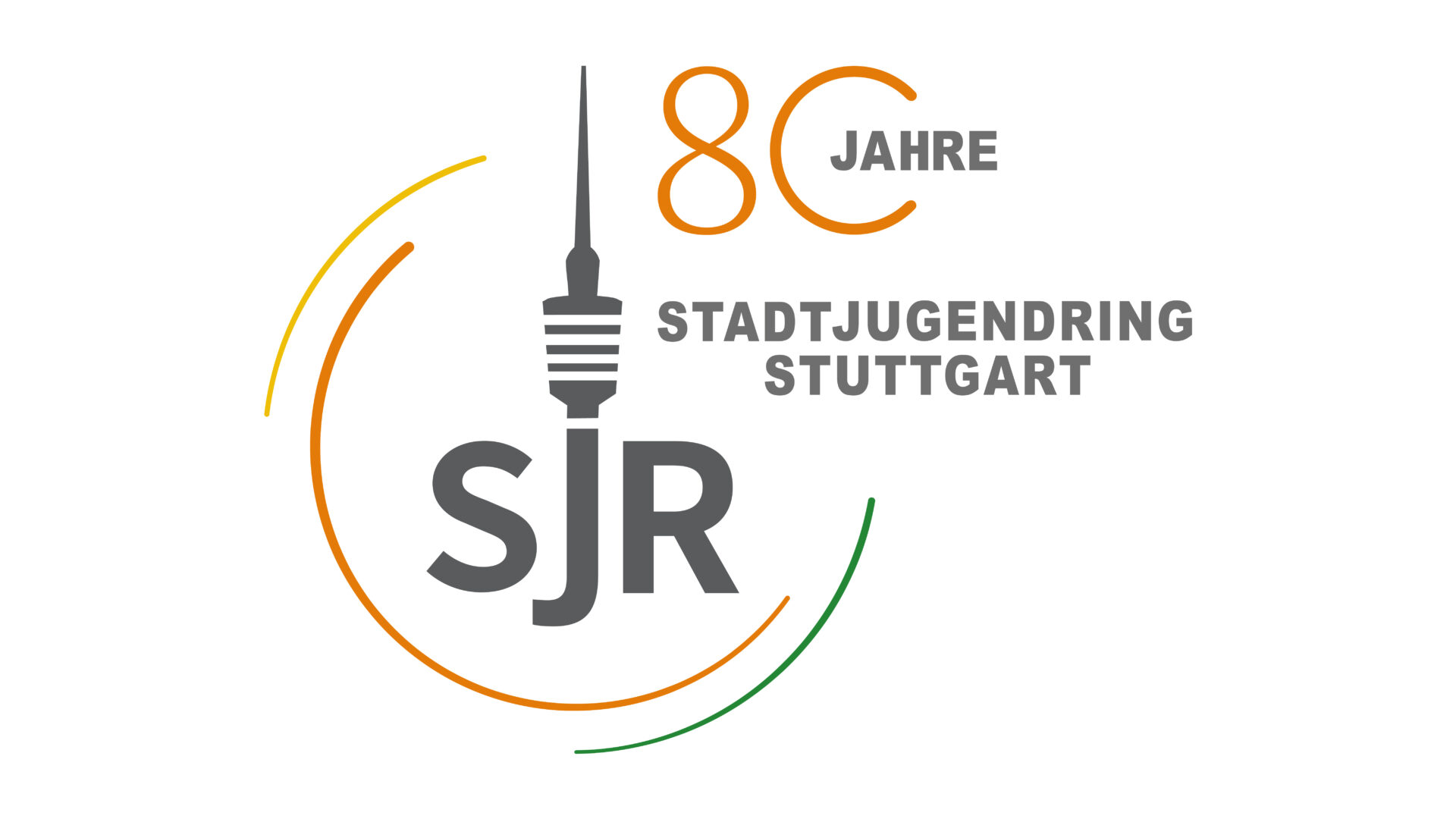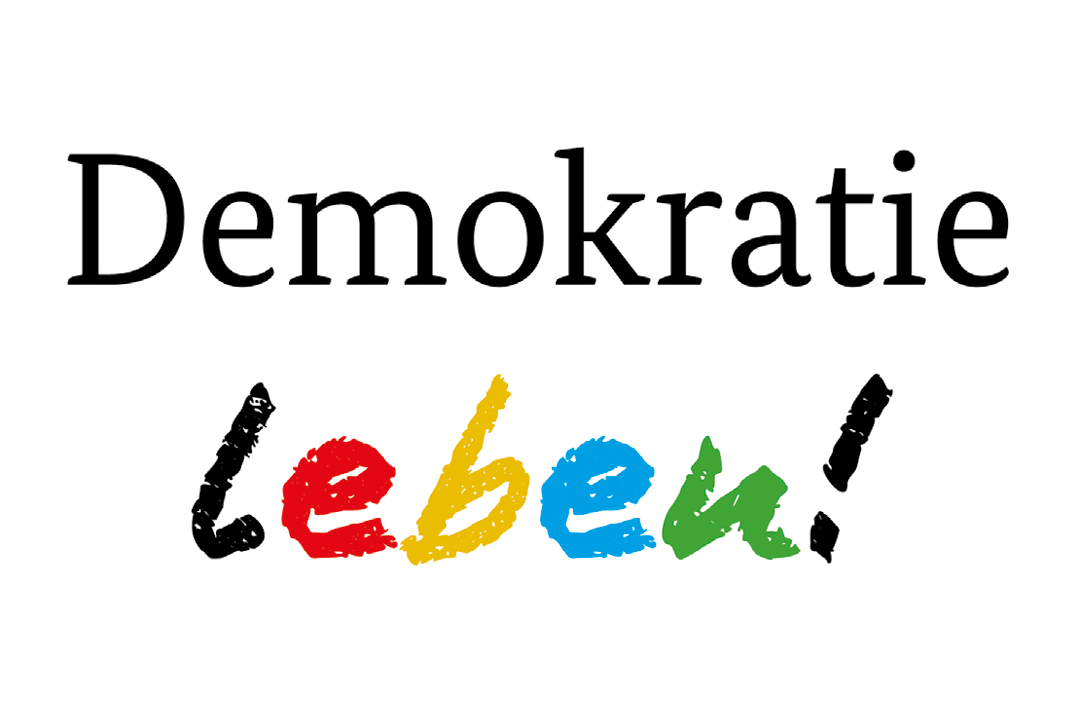„Demokratie leben is a funding programme of the Federal Ministry for Family Affairs, Senior Citizens, Women and Youth.“
In November I become a member of a Youth Forum. You might be wondering what it is. Youth Forum is a meeting where ideas and views on a particular issue can be exchange. The youth committee is organized by young people themselves and decides on applications from the youth fund of the Partnership for Democracy Stuttgart. This was set up to promote projects and actions by young people for young people. Youth forums exist to represent the views of young people, giving them the opportunity to be heard on their ideas, opinions, and needs, mainly to increase their participation in society. The one I take part in, is run by my colleagues – Alice and Matze, who work with me in Stadtjugendring Stuttgart.
The first meeting took place on 23rd November 2023. Firstly, we had an introduction round when everyone said something about themselves. Then we talked about Partnership for Democracy Stuttgart (Partneshaft für Demokratie Stuttgart). It is long-term cooperation and support network founded by the Federal Ministry for Families, Senior Citizens, Women and Youth as a part of The Federal Program “Democracy Leben” (Das Bundesprogramm Democracy Leben). We were shown the network of partner organisations. We also talked about its goals and main points, structure, and the way it is managed and financed. Then we focused solely on the Youth Forum. Matze and Alice showed us the projects that were approved by the previous committee, as well as the budget they had and how much they spent, to give us an idea what is possible. We then learned about criteria that the projects had to fulfill to be eligible to get the funding. Finally, we discussed the rules regarding how we want to work together as a committee and how will the next meeting look like.
In January, first applications for this year, came in. We got 8 applicants. We had time to get familiar with the forms they sent us. It was really hard to not get lost in the files and distinguish them from each other. To help myself, I created a file with the most important information and what are the strong and weak points from each of them. For the short overview, we got a table from Matze and Alice, that included description of the projects as well as names of the clubs that applied, titles, target groups, dates when the project will take place and maybe most importantly the money they applied for.
Then came the fun part – deciding which projects will get the founding. It happened on the second meeting that took place just a few days ago, on 19th February.
To make it easier, Matze put the printed-out overviews of the projects on the blackboard. After reading out their overviews, we went through them one by one. I should probably mention that the meeting of the committee was held mostly in German. I was using Google translator’s dictate option to follow up what people were saying. I got lost quite a few times, because, people were speaking in a very nuanced way, adding a lot of words that weren’t actually important. But, regardless, I knew the projects, so it wasn’t that bad. Beside me, there was one other person who spoke mostly English. We talked with Matze, and he agreed that the voting and final discussions will be in English, since that was the language that everyone spoke.
We used a voting system I didn’t knew before. It is called a resistance scale. Each person was supposed to show on the hand score from zero to five. Zero meant that they have no resistance towards the project, and they want it passed on. Five meant super high resistance and not wanting the project to be founded under any circumstances. We agreed to found four projects, since they got quite a low score. One even got zero from everyone. There were 9 people voting, so maximum score would be 45. The last project we accepted had 8 points so 18% resistance. Then was a huge, huge gap. Next project in line, that we were supposed to vote on had 26 and another 32 if I remember correctly. I was for throwing both to the trash since it was literally, 58% and 71% resistance. We discussed them again, redo the voting, choose the one that previously was on the more loosing position and decided to vote on it my email in a few days, since we were running out of time. Overall, I was mostly happy with the outcomes, since the projects I was rooting for, were accepted. The last project, finally won, but in my opinion only because some people refused to vote. One way or another, it will be realised. I realised during the process that deciding who gets the founds is tricky, because you never know how much projects you will get. So, you might agree to a project and then be forced to reject way better one, because you run out of money. But, on the other hand, if you are too picky, you might end up not spending all the money and inevitably wasting them, because they cannot be used in a next year. I am waiting to see how the situation will look like in the future, what applications we will receive and which we will grant. We spent 17,500 Euro from 23,000 Euro, so we only have 5,500 Euro and a year to go, which gives us only a possibility to realise two projects. I hope people will be more picky next time, because I really enjoy being able to participate in the forum, and when we run out of money, it will be over.

